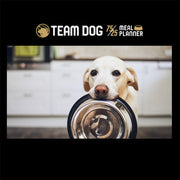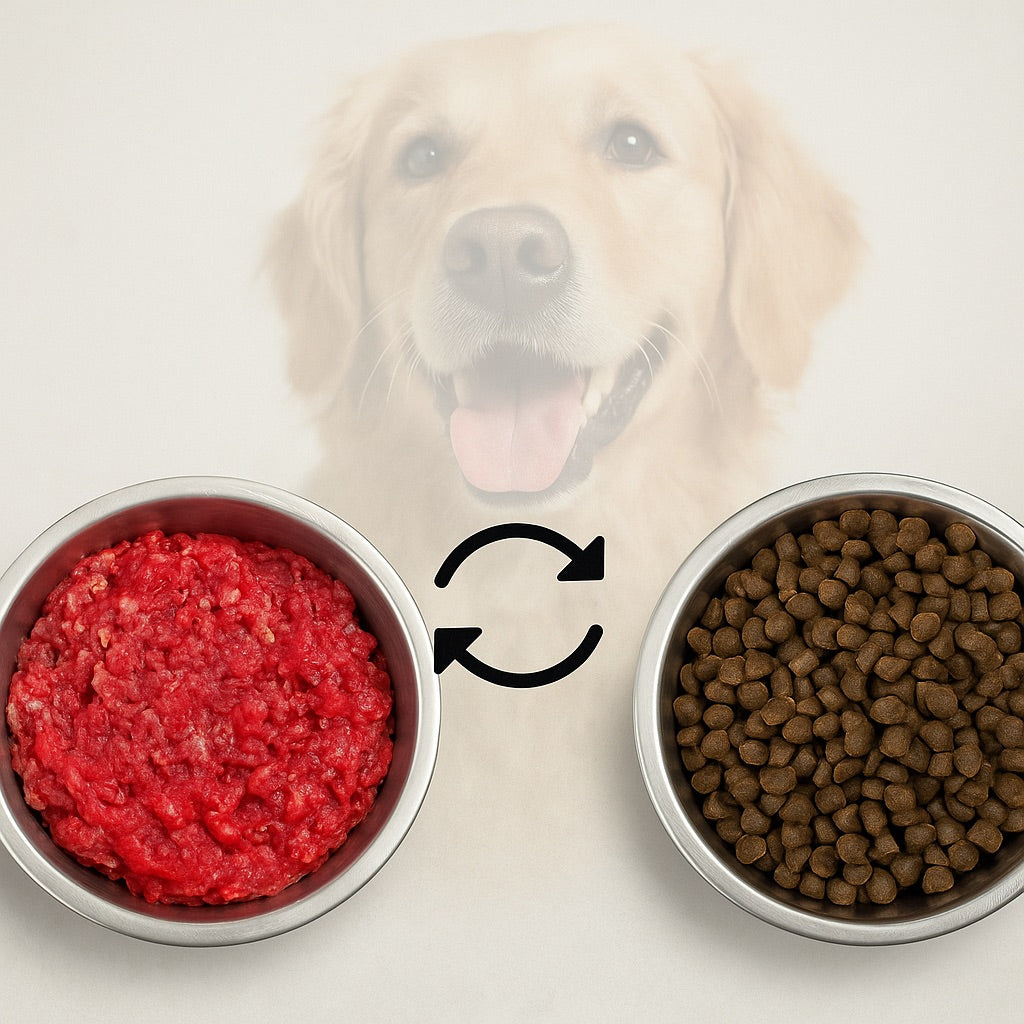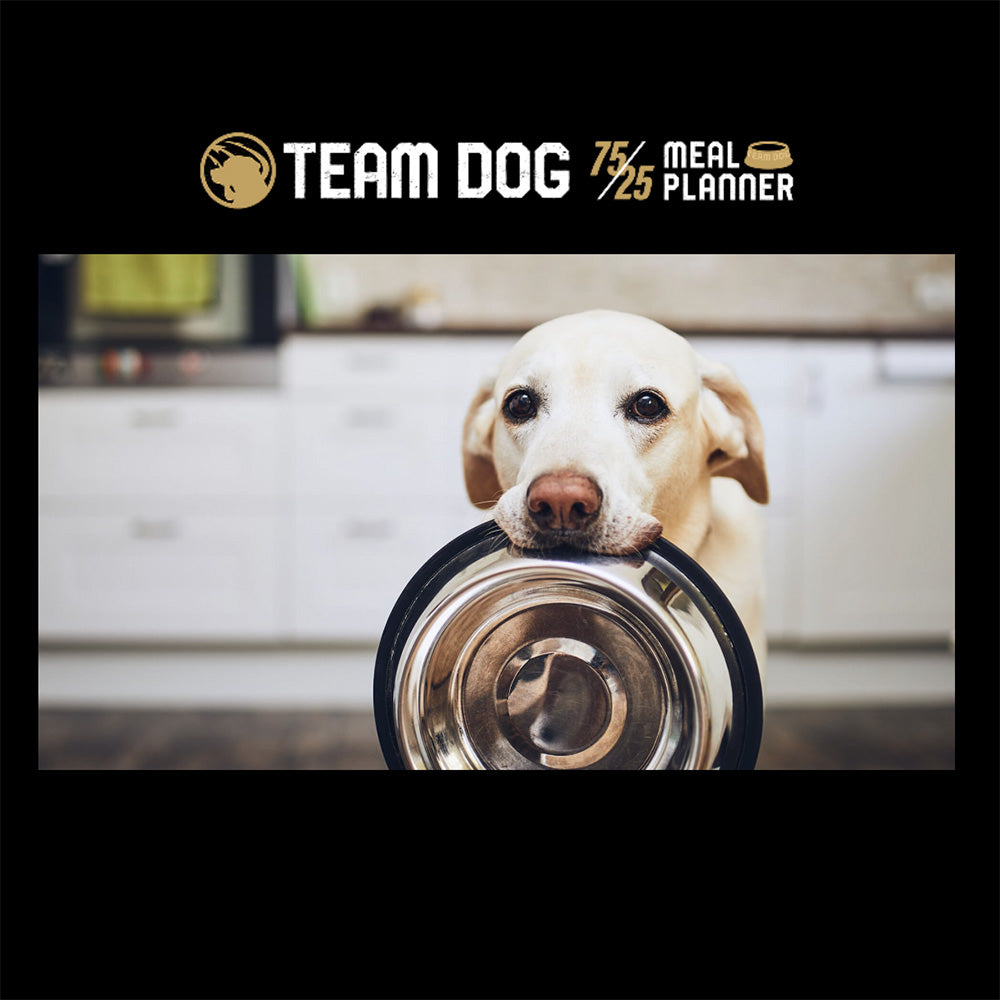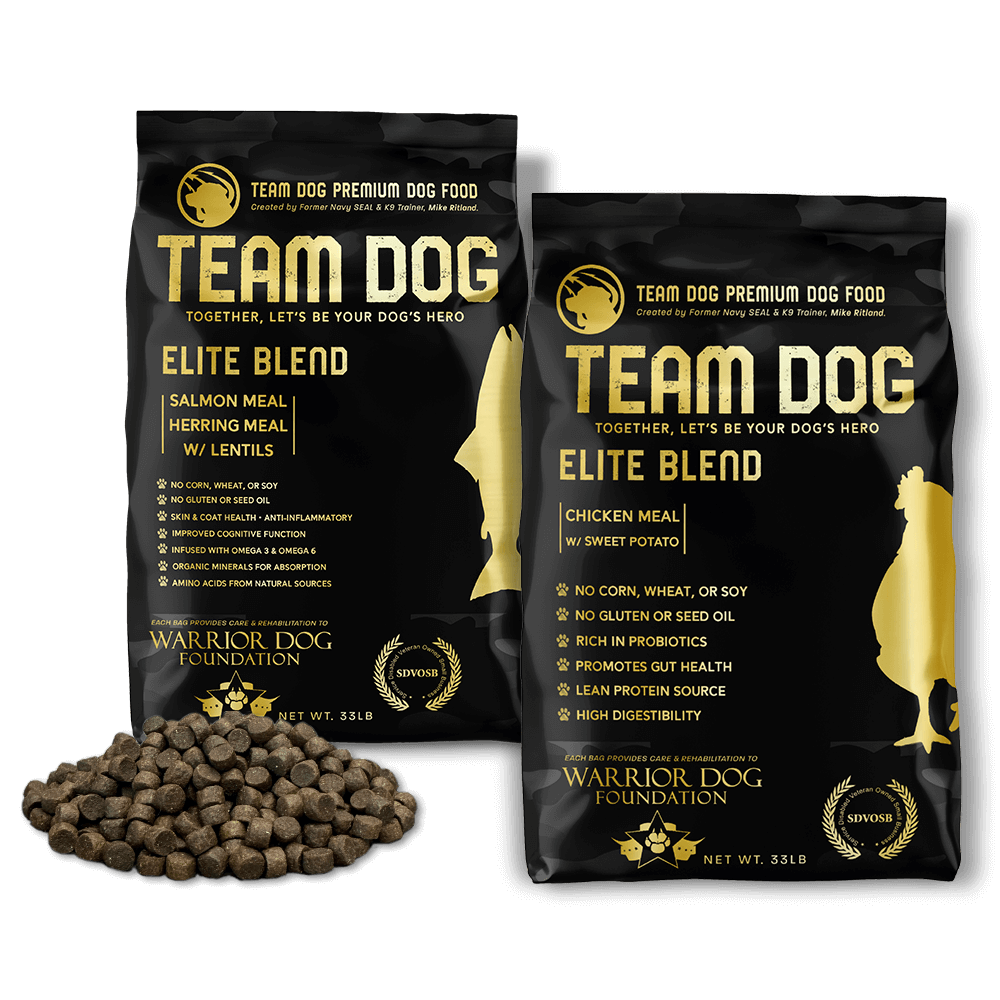Itchy Paws & Upset Tummies: Is Your Dog Allergic to Their Food?
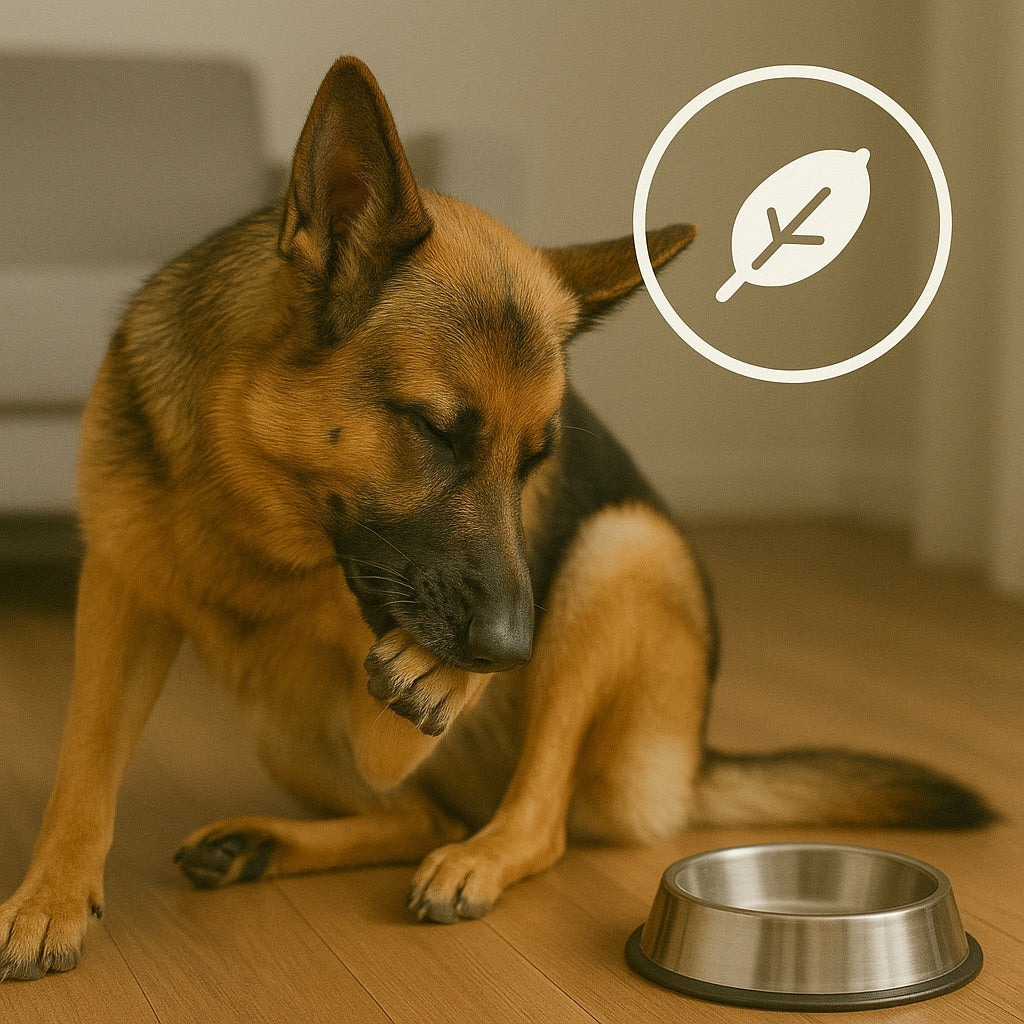
Written by Christian Morgan, Doctor of Veterinary Medicine
Does your dog constantly scratch, lick their paws, or have chronic ear infections? These could be more than just quirks—they might be signs of a food allergy. At Team Dog, we're passionate about helping pet parents decode the mystery behind their pup's discomfort and get them back to their own self.
Let's break down what food allergies in dogs look like, what causes them, and how you can help your dog thrive.
Signs Your Dog May Have a Food Allergy
Food allergies often mimic other conditions, but some symptoms are classic red flags:
- Excessive itching, especially on paws, ears, face, and rears
- Chronic ear infections or recurring yeast infections
- Hair loss or bald patches from scratching
- Digestive issues like vomiting, diarrhea, or frequent gas
- Frequent licking of paws or rear
- Scooting or biting at the rear end
Common Causes of Dog Food Allergies
Contrary to popular belief, grains are not the #1 culprit in most cases. It's usually proteins or repeated exposure to the same ingredients over time.
Top allergy triggers include:
- Beef
- Chicken
- Dairy
- Lamb
- Eggs
- Wheat
- Soy
Why does it happen? Just like humans, dogs can develop an overactive immune response to certain proteins or ingredients in their food.
Solutions: How to Help Your Pup Feel Better
If you suspect your dog has a food allergy, the best way forward is through a systematic approach:
-
Talk to Your Vet
- Rule out other conditions like parasites or environmental allergies.
- Your vet may recommend a prescription elimination diet.
-
Elimination Diet
- Feed a novel protein and limited ingredient diet (e.g., duck, herring) for 8–12 weeks.
- Avoid treats, table scraps, and flavored chews during this time.
-
Transition Slowly
- Always transition gradually over 7–10 days to avoid additional stomach upset.
-
Track Symptoms
- Keep a food diary to note improvements or flare-ups - it helps identify triggers faster.
Bonus Tips
- Avoid rotating between the same proteins frequently; variety matters, but too much of one thing can lead to sensitivities.
- Opt for clean, transparent brands like Team Dog that list all ingredients clearly.
Final Thoughts
Food allergies can be frustrating, but the right nutrition can make a world of difference. If your dog is itching, scratching, or just not themselves, a diet change could be the simple solution. At Team Dog, we're here to help you navigate the options and find the perfect bowl for your best friend.


